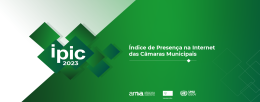Abstract
Today's technological advances have created new channels for collaboration of local governments with the public. Citizens can perform the role of both partner and customer in public service delivery. This paper examines citizen such collaboration in Barcelona. In this setting, citizens monitor and evaluate of public services using a feedback system to register their complaints. Nevertheless, their propensity to make complaints may be biased due to socioeconomic factors, political activism, or partisan alignment. This article analyzes bias in citizen complaints about eight urban public services in Barcelona using a panel data approach. We use monthly observations from the city’s feedback system from 2014 to 2019, at a district level, conducting fixed-effect estimations. We find that, while political participation is related to higher propensity to complain, economic status, educational attainment, and partisan alignment do not have a significant association with complaints.
Speaker
Marianna Sebo holds a Ph.D in Economics from the University of Barcelona. She received a Master's degree in Economics with the specialization of government and markets and games, behavior, and incentives. She is interested in public policy analysis, economics of regulation, and industrial organization. She is currently working on topics concerning political economy and public service delivery. She is currently on a visiting research stay at the University of Minho (Portugal) before taking up a post-doc position at the University of Barcelona.
If you require more information about this event, please email us: egov@unu.edu.



